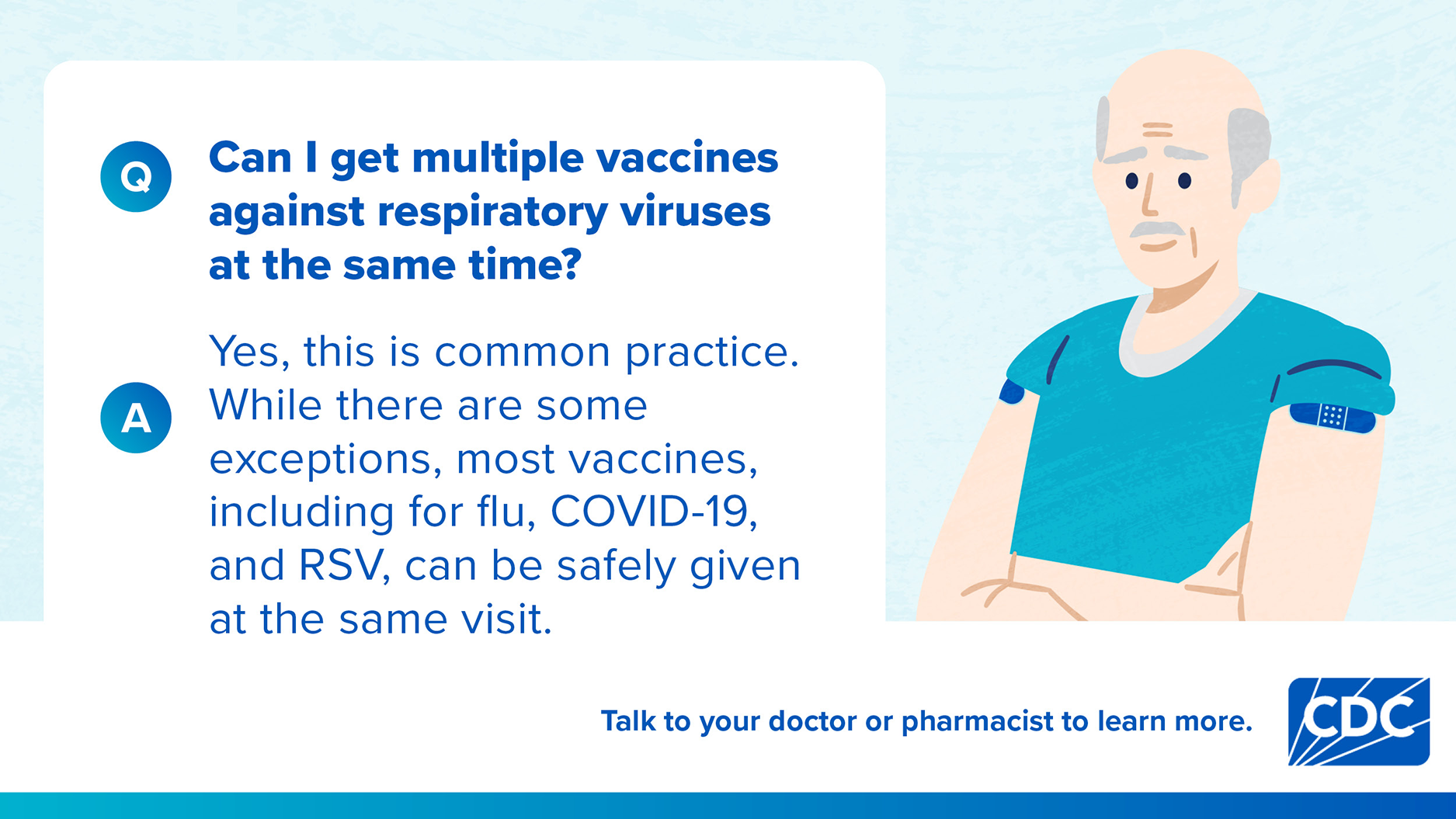At a glance
- Staying up-to-date with recommended immunizations lowers your risk of hospitalization and death from respiratory illnesses.
- Talk to your doctor or trusted healthcare provider about what immunizations are recommended for you and your family.

Recommendations
For information about specific immunization recommendations, visit:
- Flu: Seasonal Flu Vaccine Basics
- RSV: RSV immunizations
- COVID-19: Staying Up to Date with COVID-19 Vaccines
You might be due for other vaccines, like those to prevent pneumococcal disease, shingles, or whooping cough. Ask a healthcare provider which vaccines are recommended for you.

How it works
Immunizations help prepare your body to defend itself from viruses and severe illness. Some immunizations teach your immune system what the virus looks like, so it can prepare to protect against it. Other immunizations directly provide you with antibodies to protect you from the virus.
Benefits
Getting vaccinated can reduce your chances of getting infected, but its main strength is preventing severe illness and death.
Flu and COVID-19 vaccines
- Reduce your risk of hospitalization and critical illness.
- Make most infections less severe, helping you get back on your feet sooner.
- COVID-19 vaccines also reduce your chance of suffering the effects of Long COVID.
RSV immunizations
- Can reduce a baby's chances of hospitalization from RSV.
- Can reduce the risk of hospitalization in older adults.
Steps you can take
- Talk with a healthcare provider about what vaccines are recommended for you.
- Consider getting more than one vaccine at once. Flu, COVID-19, and RSV vaccines can be given at the same visit.
- For people who prefer to get their recommended vaccines at different visits, you don't need to wait a specific amount of time after the previous vaccine to get your next one.
- Review the vaccine schedule to become more familiar with immunization recommendations.
- The Disability Information and Access Line (DIAL) can help people with disabilities find local vaccination clinics, connect with accessible transportation, and provide other assistance in accessing COVID-19 vaccinations and setting up a vaccination appointment.
- Talk to your friends and family about the benefits of getting vaccinated.
Steps organizations can take
- Organize vaccination clinics at workplaces. This helps remove obstacles to accessing vaccines.
- Partner with trusted community members (such as doctors, nurses, health educators, or faith-based and community leaders) and have them attend vaccination events to share accurate information about vaccines.
- Provide employees with paid time off to get vaccinated and recover from any side effects.
